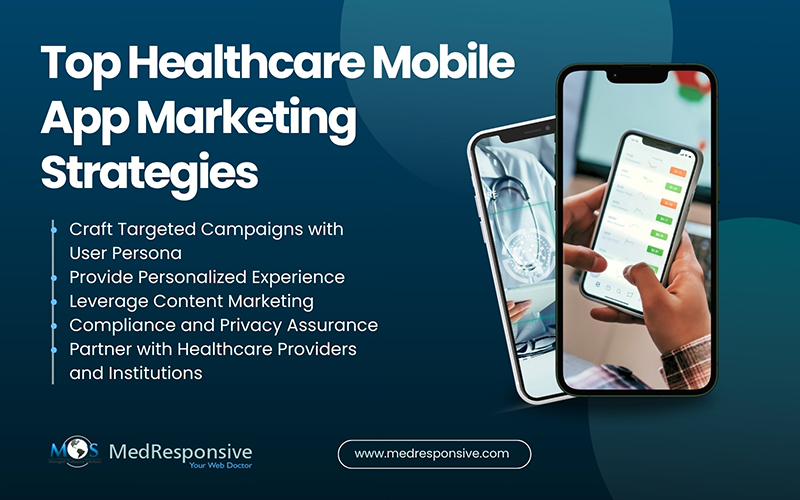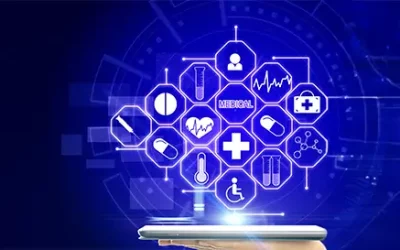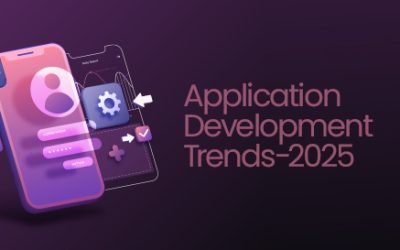Over the years, as technology has evolved, the way healthcare is delivered has shifted dramatically. Enter the world of healthcare apps – tools that aim to make our healthcare better, simpler, and more accessible. But what makes the healthcare application market so exciting right now?
MHealth apps are used to monitor our vitals, track workouts, get health advice, or even consult with doctors remotely. These aren’t just luxuries anymore; they’re integral to the modern healthcare experience. As expected, the global mobile health (mHealth) app industry is undergoing significant expansion, driven by various factors such as fitness awareness, rising aging population, increasing chronic diseases, and demand for remote care.
To give you a sense of the scale:
- In 2023, the global mHealth apps market was valued at over $67 billion
- By 2032, it is projected to surpass $ 296.40 billion
- This represents a growth rate of CAGR of 17.8% over the next several years
From these statistics, it can be seen that mHealth platforms are more than just a trend; it’s a permanent technological evolution. With more people turning to their smartphones for health-related services, marketing a healthcare mobile app effectively is critical to stand out in a competitive market. What does marketing your healthcare mobile application to patients involve?
Best Ways to Promote a Medical App in 2025
Let’s explore effective and authentic strategies to market your medical application software while addressing the unique challenges the healthcare industry presents:
Craft Targeted Campaigns with User Persona
Understanding your audience demographic is the key to effectively promoting mHealth apps. This means identifying and segmenting different user personas that match your marketing goals. They are distinct groups of patients who have specific needs, preferences, and health goals. By creating targeted campaigns tailored to these personas, you can ensure that your marketing efforts are as relevant and impactful as possible.
How to do it:
- Define Your User Personas: Start by segmenting your audience based on demographics, behaviors, and health needs. Use tools such as Google Analytics to track user behavior data. Common healthcare app user personas might include tech-savvy fitness enthusiasts, chronic or diabetic condition management, or caregivers.
- Create Custom Campaigns for Each Persona: Once you’ve identified the personas, develop specific campaigns that address their unique pain points and preferences. For example, a fitness enthusiast might be interested in a campaign featuring workout challenges, while a senior user might respond better to messages emphasizing safety, convenience, and remote health consultations.
- A/B Testing and Optimization: Continually monitor the effectiveness of your campaigns by conducting A/B tests on different messaging, visuals, and offers. This allows you to fine-tune your campaigns to maximize engagement and conversions for each persona.
Targeted campaigns, driven by well-researched user personas, allow you to speak directly to the unique needs of your patient base, increasing the likelihood that they will download and engage with your mHealth application.
Provide Personalized Experience
Personalized campaigns resonate better with users. Use the data you’ve collected to send personalized messages, whether through email marketing, social media ads, or notifications.
How to do it:
- Push Notifications and Alerts: Use push notifications to send personalized reminders for medication, appointments, or wellness activities. These customized messages can help users feel more connected and invested in using the tool, driving personalized push notifications for health app engagement.
- User Preferences: Allow users to set preferences for the type of health content they receive. Whether it’s online booking, diet plans, or medication reminders, adapting to user’s preferences can enhance patient satisfaction.
As users increasingly expect tailored digital experiences, personalized health tech marketing becomes essential for meeting their individual needs and fostering long-term application engagement.
Leverage Content Marketing
Create high-quality, SEO-optimized content to improve search engine rankings and organic traffic. Providing valuable content that highlights the app’s benefits, features, and practical uses in improving their health management can turn users to prospective patients. Utilize social media platforms such as Instagram to engage and create a community around your application.
How to do it:
- Create Blogs and Articles: Develop a blog section within your app or on your website. Share articles on topics such as disease management, healthy living tips, and how to make the most of your healthcare app.
- Produce Multimedia Content: Infographics or short video tutorials that show users how to use the app’s features can be both engaging and informative. Visual content is a user-centric way to highlight real-world applications.
- Share Patient Success Stories: Real patient stories that show how your medical platform improved their health outcomes can resonate with potential users. User-generated content, like testimonials, can build authenticity and trust.
When patients see that your application is not just a service but a source of knowledge, they’ll be more likely to trust it and keep coming back.
Compliance and Privacy Assurance
One of the most significant concerns patients have when using healthcare apps is the security of their personal health data. Demonstrating your commitment to patient confidentiality and data security should be the primary focus of your marketing strategy.
How to do it:
- Compliance with Regulations: Highlight your app’s compliance with regulations such as HIPAA (Health Insurance Portability and Accountability Act). HIPAA compliant app marketing can help alleviate any concerns around data handling, avoid legal ramifications, and protect your company’s reputation.
- Secure Authentication: Incorporate strong authentication methods such as two-factor authentication to reassure users that their personal and health data are protected.
Transparency in your marketing efforts shows that you value patient confidentiality, which builds trust and long-term user loyalty.
Partner with Healthcare Providers and Institutions
Integrating medical expertise can not only help to get the word out about your healthcare application but also enhance personal branding. Partnering with hospitals for app marketing can provide credibility, authority, and wider reach.
How to Do It:
- Collaborate with Doctors: When doctors recommend your app directly to patients, it can establish trust and reliability. If patients hear about your app from their trusted healthcare provider, they are more likely to download and use it.
- Institutional Partnerships: Partner with hospitals, health insurance providers, or specialty clinics to introduce your app to their networks. These institutions often have established relationships with large groups of patients, giving your app the exposure it needs.
- Incorporate Feedback from Healthcare Professionals: Involving professionals in the app development process and marketing campaign gives your app more legitimacy and enhances its features to meet real healthcare needs.
Collaborations allow you to tap into established trust networks, making it easier to reach potential users who are already looking for reliable healthcare solutions.
Team Up with External Marketing Firms
It isn’t enough to just build a robust healthcare app to get the success it deserves – you must also ensure that it reaches the right audience at the right time. As healthcare app development and marketing is an intricate and complex task that requires technical knowledge, creativity, adaptability, and data-driven approach, business owners can outsource it to specialized experts. Healthcare marketing agencies with proven experience and expertise have the resources and insights required to implement a successful mobile health app promotion strategy. By combining traditional marketing methods with digital marketing efforts, these experts can maximize the visibility and engagement of your mHealth app. In the highly competitive world of healthcare and app development, standing out from the crowd and establishing leadership is imperative for long term success.





